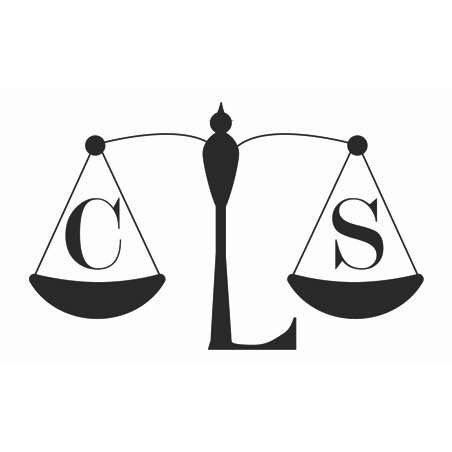Best International Trade Law Lawyers in Yemen
Share your needs with us, get contacted by law firms.
Free. Takes 2 min.
Or refine your search by selecting a city:
List of the best lawyers in Yemen
About International Trade Law in Yemen
International Trade Law in Yemen is shaped by a blend of local legislation, regional agreements, and international conventions. Yemen, being a member of the World Trade Organization (WTO) since 2014, abides by the global standards set by the WTO, which aim to facilitate smooth and fair trade relations with other countries. Its legal framework encompasses various aspects including tariffs, trade restrictions, dispute resolution, and the enforcement of trade agreements. Understanding these legal nuances is crucial for businesses and individuals engaged in international trade within or involving Yemen.
Why You May Need a Lawyer
There are several situations where individuals or businesses might require legal assistance concerning International Trade Law in Yemen:
- Contract Negotiation and Drafting: To ensure that trade agreements are fair, compliant with the law, and clearly drafted to avoid future disputes.
- Regulatory Compliance: Navigating the complex regulatory environment to ensure adherence to Yemeni and international trade laws and regulations.
- Trade Disputes: Resolving disagreements related to trade, whether with foreign partners or within the framework of international trade bodies.
- Import and Export Licensing: Assistance with obtaining necessary permits and licenses to trade goods across borders.
- Customs Compliance: Understanding customs regulations and ensuring correct customs duties and classifications.
Local Laws Overview
International Trade Law in Yemen is influenced by several key aspects of local legislation:
- Customs Law: Governs the procedures and requirements for importing and exporting goods, including tariffs and tax structures.
- Investment Law: Encourages foreign investment by offering certain protections and incentives compliant with international standards.
- Maritime Law: Regulates shipping and sea-related trade activities, vital given Yemen's strategic location along major sea routes.
- Commercial Law: Covers general business activities, including trade contract enforcement and intellectual property rights.
Frequently Asked Questions
What is the role of the World Trade Organization in Yemeni trade law?
The WTO provides a framework for international trade agreements, which Yemen follows to ensure its laws and practices align with global standards, facilitating smoother international trade.
How are trade disputes resolved in Yemen?
Trade disputes are typically resolved through negotiation, arbitration, or within local courts. Yemen also adheres to international dispute resolution mechanisms under the WTO framework.
Do I need a special license to export goods from Yemen?
Yes, specific licenses are required for exporting certain goods, depending on the nature of the products. Consulting with a legal expert can help determine the necessary permits.
What are the common regulatory hurdles in international trade in Yemen?
Common hurdles include navigating customs regulations, obtaining correct certifications, and ensuring product compliance with Yemeni standards.
Does Yemen have free trade agreements with other countries?
Yemen is part of several regional trade agreements and is a member of the Greater Arab Free Trade Area (GAFTA), which provides certain trade benefits within the Arab region.
How is import tax calculated in Yemen?
Import tax is typically calculated based on the type, value, and volume of the goods being imported. It is crucial to consult with a customs expert to determine the precise duties owed.
What customs documentation is required for import/export activities?
Common documents include a commercial invoice, packing list, certificate of origin, and any applicable licenses or permits.
What are the penalties for violating trade laws in Yemen?
Penalties can range from fines and seizures of goods to more severe legal consequences depending on the nature and severity of the violation.
Are there incentives for foreign businesses investing in Yemen?
Yes, the Yemeni government offers various incentives to attract foreign investment, including tax breaks and protections against nationalization.
How can I ensure my trade contracts are enforceable in Yemen?
To ensure enforceability, contracts should be drafted in compliance with Yemeni laws and incorporate elements that facilitate resolution through local judicial or arbitration processes if necessary.
Additional Resources
For further assistance, consider reaching out to the following resources:
- Ministry of Industry and Trade: Provides guidance and information on trade regulations.
- Yemen Customs Authority: Offers resources on customs procedures and duties.
- Local Chambers of Commerce: Can provide insights and support for businesses operating in Yemen.
- International organizations, such as the WTO, for a broader understanding of Yemen's global trade commitments.
Next Steps
If you are in need of legal assistance in the area of International Trade Law in Yemen, here is a suggested plan:
- Identify the specific area of trade law where you need assistance-be it compliance, dispute resolution, or contract negotiation.
- Research and reach out to licensed law firms or attorneys specializing in international trade in Yemen.
- Prepare documentation and a clear outline of your trade-related issues to facilitate efficient consultation.
- Discuss your case with the lawyer and explore options for resolution or compliance.
- Follow legal advice and ensure continued compliance with local and international laws to facilitate smooth business operations.
Lawzana helps you find the best lawyers and law firms in Yemen through a curated and pre-screened list of qualified legal professionals. Our platform offers rankings and detailed profiles of attorneys and law firms, allowing you to compare based on practice areas, including International Trade Law, experience, and client feedback.
Each profile includes a description of the firm's areas of practice, client reviews, team members and partners, year of establishment, spoken languages, office locations, contact information, social media presence, and any published articles or resources. Most firms on our platform speak English and are experienced in both local and international legal matters.
Get a quote from top-rated law firms in Yemen — quickly, securely, and without unnecessary hassle.
Disclaimer:
The information provided on this page is for general informational purposes only and does not constitute legal advice. While we strive to ensure the accuracy and relevance of the content, legal information may change over time, and interpretations of the law can vary. You should always consult with a qualified legal professional for advice specific to your situation.
We disclaim all liability for actions taken or not taken based on the content of this page. If you believe any information is incorrect or outdated, please contact us, and we will review and update it where appropriate.
Browse international trade law law firms by city in Yemen
Refine your search by selecting a city.









